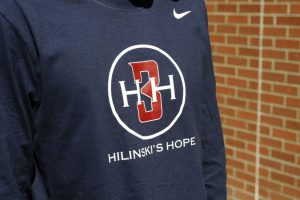Athletes Connected is mentioned and team members quoted in this story about how colleges are navigating mental health during the pandemic.

By Josh Kendall
Even as states slowly reopen, social distancing has become the reality of American life during the COVID-19 outbreak. That makes South Carolina head football coach Will Muschamp nervous for a lot of reasons, one in particular.
“I’m really worried about the mental health part of it right now,” Muschamp said Thursday on 1010 XL radio in Jacksonville, Fla. “College football is like a brotherhood. They’re used to seeing each other every day. Now that is gone. I’m concerned about that part of it for our guys, personally.”
College athletics health care professionals such as Josie Nicholson have been worried about it from the start.
“We want to socially distance and psychically isolate, but don’t socially isolate,” said Nicholson, a psychologist specializing in sports performance at Ole Miss. “We can stay distant and connected.”
Nicholson works closely with Mark and Kym Hilinski, the parents of Gamecocks quarterback Ryan Hilinski and the founders of Hilinski’s Hope, which has been seeking to raise awareness of mental health issues since the death by suicide of the Hilinskis’ middle son, Tyler, a quarterback at Washington State.
The Hilinskis are concerned that the cancellation of spring college athletics seasons, the uncertainty about fall seasons and the stress surrounding the coronavirus and its preventative measures will make athletes already working through mental health issues more susceptible to problems or even prompt mental health issues in others.
“After Tyler died, I was in such a fog and a blur and the world didn’t seem real to me, and it took a while to get over that. My feelings back then were much greater than they are now, but I almost feel the same way in this pandemic, and I’m 55 years old,” Kym Hilinski said. “I started thinking, ‘I have been through so much in my life. What are these 18-, 19-, 20-, 21-year-old kids doing if they are feeling the same thing?’ That really makes me concerned for them and their mental wellness.”
At the University of Michigan, one of the NCAA’s leaders in student-athlete mental health services, there has been an increase in remote access to counselors, said Rachel Amity, a program coordinator at Athletes Connected and athlete counselor at the school.
Athletes Connected, a mental health awareness organization that is a collaboration of Michigan’s athletic department, school of public health and Depression Center, distributed “An Athlete’s Guide to Coping During the COVID-19 Pandemic.”
“I think it’s definitely a concern. How it’s going to play out? I don’t think anybody knows,” said Jeremy Fallis, a marketing communications specialist at Michigan’s Depression Center. “Much of their identity is tied into their sport, and how do you cope with that? We have been trying to deal with that even before this happened. We try to talk about who they are off the court or off the field as much as possible and reinforce the idea that you are more than just an athlete.”
South Carolina sports wellness coordinator Sarah Noll is using Skype for Business to reach out to Gamecocks athletes seeking counseling; however, licensing rules in her profession can make that difficult. Counselors are not legally allowed to provide counseling to an athlete who is in a state they are not licensed in. Collegiate mental health professionals have compiled a list of more than 300 providers across the nation in the last two weeks so they can put their athletes who may be in different states in touch with a licensed professional.
“The biggest thing is encouraging people to stay connected,” she said. “We can still check in with our student-athletes. We can still let them know that we care. We are emailing and texting, just trying to stay connected to make sure they are OK.”
Athletes should try their best to maintain their routines and reach out for help if needed, Fallis said.
“If you are struggling, you have a counselor back in Ann Arbor who will pick up the phone or answer an email,” he said.
Read the rest of the story on The Athletic.
